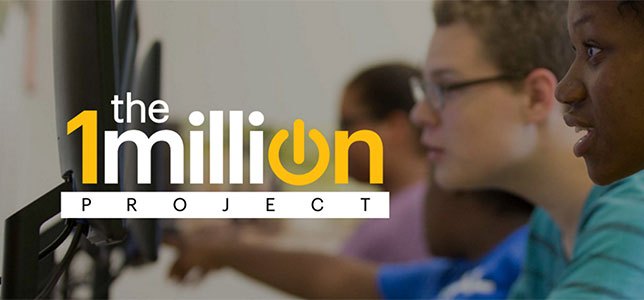Pomona Students Line Up for Sprint-Issued Hotspots and Home Internet
- By Dian Schaffhauser
- 02/16/17

Even as the Federal Communications Commission has begun rolling back efforts to keep the Internet affordable, a school district in Southern California this week is enjoying the largesse of telecommunications company Sprint. As part of its 1Million Project, intended to outfit a million low-income students with reliable connectivity in their homes, the company has begun issuing free mobile hotspot devices and wireless connectivity. This week 300 students lined up to receive their hotspot devices; eventually that count will reach 500.
The intention of the giveaway is to address the "homework gap" that surfaces as teachers assign more work for students to do at home, including those who may not have ready access to computing gear or internet. Eventually, the program will reach a million students with the home connectivity they need to do their school assignments.
"Our students will be able to pair devices with their Sprint mobile hotspots, helping to close the digital homework gap," said district Superintendent, Richard Martinez, in a prepared statement. "We are grateful to companies like Sprint that are using the 1Million Project to deliver equity for 500 students, allowing them to thrive in their studies outside of the school environment."
Pomona is one of 11 pilot markets to test the program, which is expected to run through the end of this school year. The program itself is scheduled to run over five years.
The project is inviting local high schools and school districts that can identify, enroll and support a minimum of 300 and a maximum of 5,000 high school students over each year of the length of the project who do not have high-speed internet access at home.
Schools and school districts can apply to the program on the Sprint website here through March 31, 2017. Qualified students will receive service for four years. They'll have 3 GB of high-speed LTE data per month; after that they can continue accessing the internet at 256 kilobits per second or purchase a data refill card.
About the Author
Dian Schaffhauser is a former senior contributing editor for 1105 Media's education publications THE Journal, Campus Technology and Spaces4Learning.